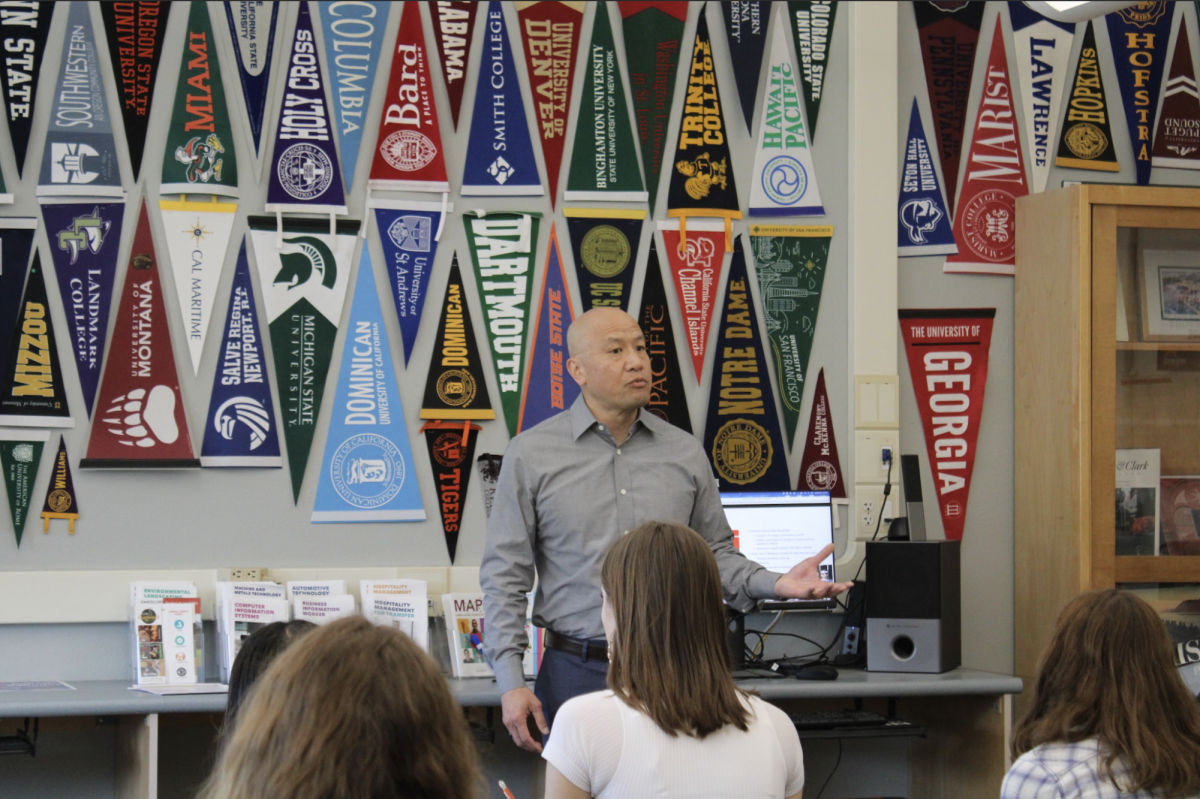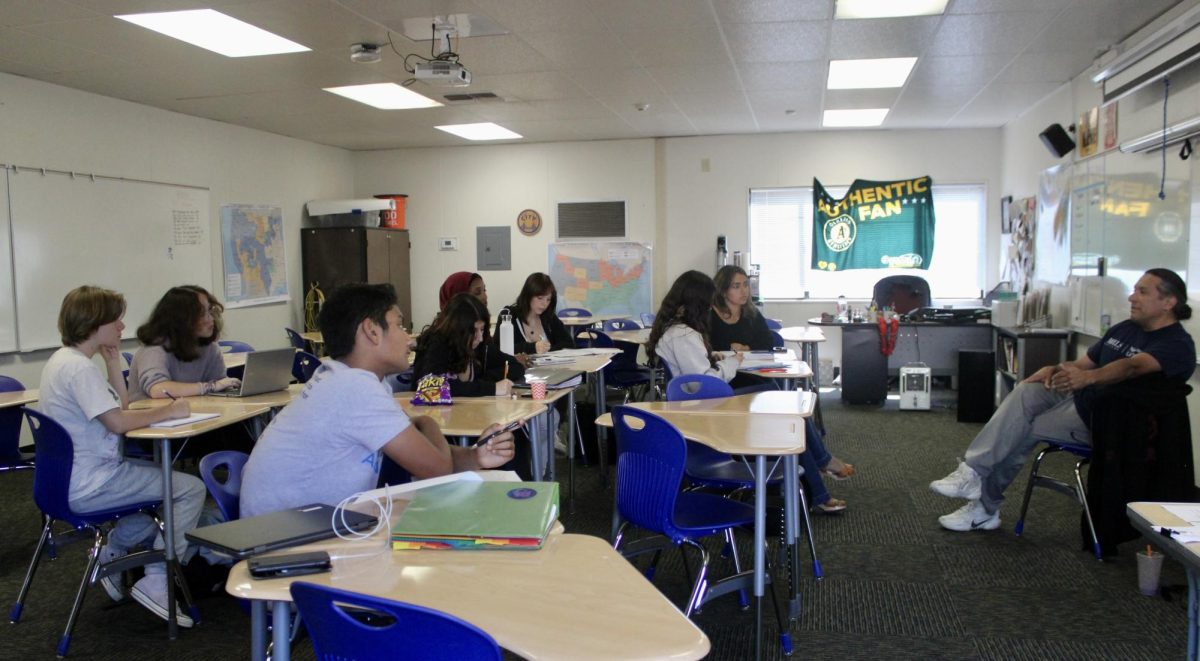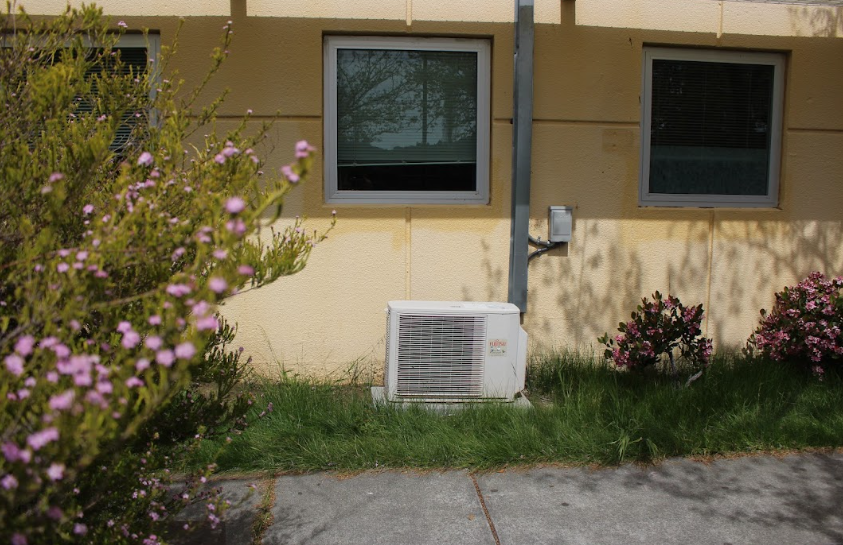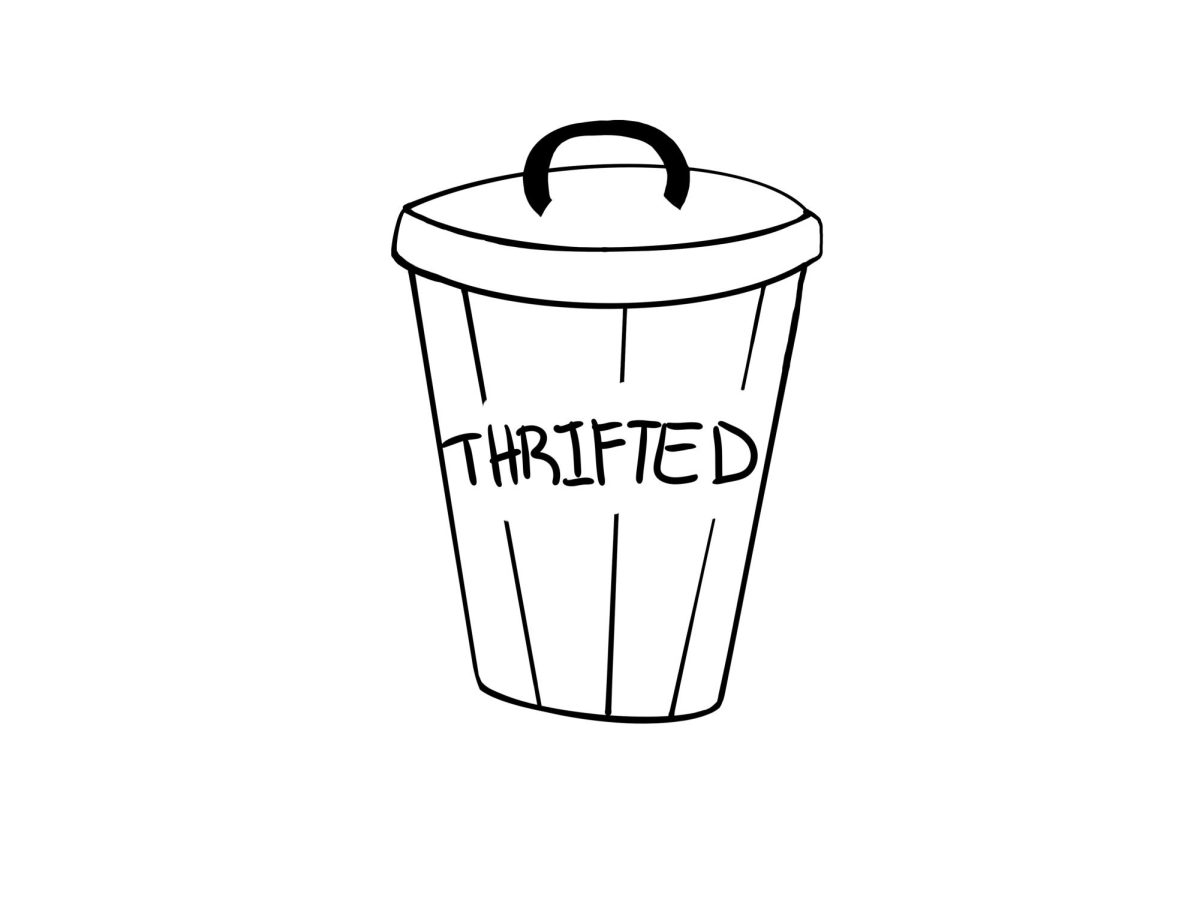
“UnPresidented” is a new weekly column discussing the transition and first days of the Trump administration.
To put it simply, President Donald Trump has got himself out of the frying pan―and into the fire. Presumably, all the Trump administration officials wanted was to ride out the aftermath of the chaotic firing of FBI Director Comey as Trump plans to take his first major overseas trip, but instead the White House is once again forced to be on damage control. On Monday, a Washington Post investigation revealed that in Trump’s meeting with a Russian foreign minister and an ambassador he offered up highly classified information regarding intelligence on ISIS, putting national security at risk. To make things worse, Trump also managed to potentially strain some foreign relations as the intelligence divulged comes not from the U.S., but from a major Middle-Eastern ally that had not authorized sharing it with Russia. Multiple officials told the New York Times it was Israel, the already disgruntled ally Trump will be visiting in the upcoming weeks.
While the Washington Post investigation lacks certain concrete details at the behest of government officials worried about national security, namely the city in which the intelligence originated and the exact specifics of the information (both of which were relayed by Trump to the Russians), it relays that the topic surrounded ISIS threats from laptops on airplanes. Lt. General H.R. McMaster all but confirmed this as he avoided direct answers in a press conference, telling reporters that “the president and the foreign minister reviewed common threats from terrorist organizations to include threats to aviation.” In other words, Trump revealed incredibly sensitive information to ambassadors of a country that doesn’t quite make the ally list, and with which Trump is currently being investigated for collusion.
Indeed, comments from the White House have largely skirted outright denial, with Trump tweeting early Tuesday morning that “as President I wanted to share with Russia (at an openly scheduled W.H. meeting) which I have the absolute right to do, facts pertaining to terrorism and flight safety. Humanitarian reasons, plus I want Russia to greatly step up their fight against ISIS & terrorism.” The question remains, why would Trump so emphatically express his “absolute right” to share information if he had not done so in the first place?
On Monday, one of the few remaining White House officials with any shred of credibility in the public eye, McMaster, decried the Washington Post story as “false,” with the deliberately implanted caveat of “as reported” allowing him to criticize small aspects without denying the whole premise.
As the Capitol devolved into chaos at the news of Trump’s purported leak, McMaster once again went in for a briefing on Tuesday. Throughout the briefing, McMaster never definitively confirmed the conversation, but continued to deflect and criticize the minutiae of the article. Notably, McMaster focused on the disclosure of sources, saying that “at no time were intelligence sources or methods discussed.” But, nowhere in the article does the Post, or any other press outlet, claim that Trump revealed the source of the information. And over the course of the half-hour press briefing, McMaster assured those present no less than nine times that Trump’s actions were “wholly acceptable.” In the broadest legal sense, yes, Trump’s actions were acceptable as a result of the large swathe of powers granted the president. But just because Trump is legally allowed to tweet out the U.S.’s most dangerous secrets doesn’t mean it is acceptable, by any definition of the word, for him to do so.
At the end of the briefing, McMaster made his most concerning claim yet, that “the president wasn’t even aware, you know, where this information came from.” It is with this comment that the disclosure of intelligence becomes not some strategic move to gain favor with Russia, as was suggested by some, but a spur-of-the-moment decision by a woefully uninformed president. It’s not news that Trump has repeatedly rebuffed the painstaking intelligence briefings prepared for him. But it is clear that his lack of knowledge has the potential to, or perhaps already has, caused great damage in regards to foreign policy. The spontaneity and unpredictability of his actions will have serious repercussions with U.S. allies, especially because Russia was briefed on something U.S. allies weren’t. An anonymous European official has already told the Associated Press that their country may limit the information they share with the U.S. in the future over fears that Trump may share it without their knowledge.
The Washington Post investigation also details Trump boasting about the information he imparted, purportedly saying that “I get great intel. I have people brief me on great intel everyday.” This quote further raises the possibility that Trump isn’t attempting to reach some strategic goal, but to show off. A president shouldn’t feel the need to brag to an established U.S. enemy with the disclosure of “code-word” information, namely intelligence at the top level of classification, above confidential, secret and top secret. It is important also to note that Russia is not some harmless ally. The country is closely allied with Syria and Iran, countries that aren’t exactly friends of the U.S., and could easily impart the information Trump passed along to Russia.
And this slip of the tongue comes at a time when the U.S.’s relationship with Israel is especially tenuous, with Israeli newspapers currently running stories about an American official claiming that Trump will not travel to Jerusalem’s important religious site, the Western Wall, with Israeli Prime Minister Benjamin Netanyahu because the site is not considered a part of Israel (a move that would seemingly acknowledge Palestine as a state and further complicate relations). As the country is located in the Middle East, Israel has access to important ISIS intelligence with sources that could be discovered as a result of Trump’s comments. For one, Russia knows the location of the city in which the intelligence was gathered, and therefore the country can easily figure out the source and methods of the intelligence gathering. Though Israel has not confirmed that it is the origin of the information Trump shared, relations may certainly be strained between the U.S. and the country as a result.
The situation seems almost comical when looking back at some of Trump’s campaign statements. After all, this is the man who facilitated chants of “lock her up” while claiming, as he did in September at a campaign event in North Carolina, that “we can’t have someone in the Oval Office who doesn’t understand the meaning of the word ‘confidential.’” Trump also tweeted in 2013 that Edward Snowden “should be executed” for disclosing U.S. secrets to Russia.
But there is grave seriousness to the matter at hand. Trump, with seemingly little care, has once again further strained his relationship not only with the U.S. intelligence community, but with allies around the globe.
























